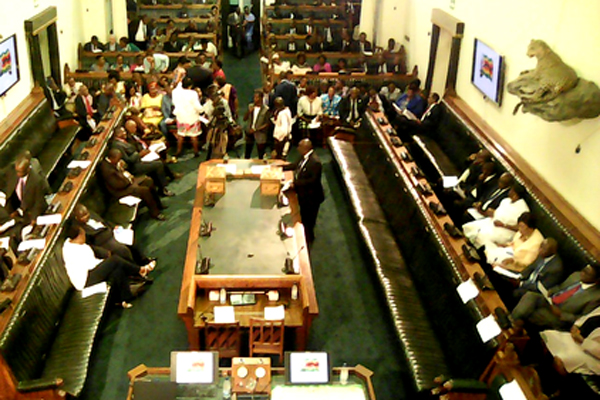
GOVERNMENT has remained vague on how it plans to provide safety nets for vulnerable citizens despite the growing social needs in the economy as Finance minister Mthuli Ncube yesterday failed to table a supplementary budget to cushion of millions Zimbabweans sinking in abject poverty.
BY TATIRA ZWINOIRA
In November last year, Parliament approved a 2020 budget of $63,6 billion underpinned by revenues of $58,6 billion and a financing gap of $5 billion (1,5% of gross domestic product), but this has largely been eroded by runaway inflation, forcing most citizens to survive from hand to mouth.
Presenting his 2020 mid-term budget review statement in Parliament yesterday, Ncube said: “Ministries have on average utilised 46% of their votes as at June 2020. This also implies that 54% of the original 2020 Budget remains unutilised.
“This enables us to operate to the end of the year as we reallocate to cover the critical needs, especially those related to COVID-19 and social protection. This position enables us to avoid tabling a supplementary budget, given our current levels of spending.”
According to the Zimbabwe Human Rights Association, millions of Zimbabweans are facing widespread poverty due to limited employment opportunities, depreciating local currency, eroding wages, and climate-induced food insecurity. The World Food Programme has predicted that more than 7,7 million people — half the country’s population — faces acute food shortages.
During the first half of the year, Ncube reported that total social protection expenditure amounted to $902,2 million against targeted expenditure of $1,3 billion, confirming the need for more safety nets as the economy remains volatile.
One of the effects of the depreciating local currency has been hyperinflation as businesses are pricing their goods according to the ever changing parallel forex market which is largely seen as reflecting the true value of the local currency.
- Chamisa under fire over US$120K donation
- Mavhunga puts DeMbare into Chibuku quarterfinals
- Pension funds bet on Cabora Bassa oilfields
- Councils defy govt fire tender directive
Keep Reading
Bizarrely, despite the increase in prices, the Zimbabwe National Statistics Agency on Tuesday reported that the year-on-year inflation rate last month as measured by all items stood at 457,19% from peak of 785,5% in May.
“Inflation is expected to gradually decline in the second half of 2020, from the peak of 785,5% in May 2020, to 300% in December 2020, responding to current monetary and fiscal policy interventions,” Ncube said.
“The projected annual inflation is consistent with reducing the month-on-month inflation from 31,7% in June 2020 to around 5% in the last quarter of 2020.”
However, reducing inflation will be difficult as that would require foreign currency to stabilise the local currency which, in turn, would slow the depreciation of the local currency and thus lower inflationary pressures.
Ncube said as at May 31, 2020, the total foreign currency inflows amounted to US$2,35 billion against foreign payments of US$1,55 billion, with most of the monies going to imports.











